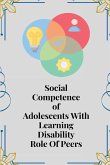Health is a multidimensional entity whose enhancement and sustenance among population is considered as an important objective of any health system (WHO,2002). Further, good health at an individual level, contributes to one's capability to function and achieve goals in life; at a macro level, health is known to be correlated with economic growth and development(Sugden & Sen, 1986). Thus, the health of an individual is considered as a merit good and therefore needs to be fairly distributed in the population (Bartley, 2005).Understanding the importance of health as a driver of economic growth and development, countries are striving to spend a higher percentage of their GDP on healthcare. However, developing countries like India are facing challenges increasing the allocation towards health sector sue to competitive demand from other sectors. As a result, increasing inequalities in health outcomes across all the dimensions are widening in many developing countries including India. The reasons for such inequalities in health outcomes across socio-economic groups is due to disparities in availability of healthcare resources leading to disparities in healthcare access. The inequalities in access /utilization is mainly attributable to high out of pocket (OOP) expenditure on healthcare services. Such high expenditure makes the households to incur debts, selling off their assets for taking treatment leading to vicious circle of impoverishment and indebtedness. Therefore, providing financial risk protection to the vulnerable households is important to achieve equity in healthcare access and expenditure. In this context in recent years, providing financial risk protection to the vulnerable households is increasingly being recognized as a poverty reduction strategy where, provision of health insurance as a means to curb the unforeseen risks of health. The provision of health insurance is looked upon as a better option vis-à-vis fee -for-service, since it meets the requirements of timely access to healthcare facilities and prevents unexpected household expenditure.








